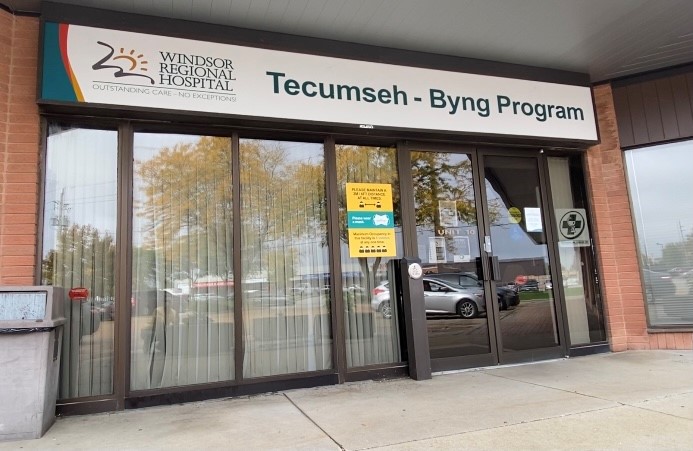HIV Care Program Marks 30 Year Milestone
15-10-2021

What was once a death sentence following an HIV diagnosis, is today a manageable and survivable illness – an important reflection for our community as Windsor Regional Hospital’s HIV Care Program marks a major milestone in its important history.
The program first opened its doors 30 years ago on October 15th, 1991 offering comprehensive treatment and anonymous testing for people living with HIV/AIDS, with a focus on their physical, psychological, emotional, and spiritual needs.
Originally located in the Kildare Wing at Met Hospital, it is currently located at 1275 Walker Road Unit 10.
“Thirty years ago, anyone who walked into this clinic, we knew was going to die,” says Program Medical Director Dr. Jeff Cohen in a video looking back on three decades of the virus. “We expected them to die.”
Today, people who walk through the doors are still fearful, but leave with hope. Due to advanced research, treatment, and proper medication, a person with HIV can live a normal lifespan.
Cohen says initially, someone diagnosed with HIV/AIDS was infectious. The only medication available in 1991 was AZT (zidovudine) which he describes as “toxic, hard to take, and it didn’t work.”
The progress in treatment has resulted in patients taking one pill, once a day with few side effects and a positive diagnosis today is now a much smaller component of a person’s life, instead of being the main focus.
Cohen recalls 30 years ago the fear, shame, stigma, and ostracism when an individual had an HIV-positive diagnosis.
“People were afraid to touch you. Family members would not want you touching their children. Many things that were not scientific … but there was still this hysterical reaction to the virus,” he says. “The fact that most of the people in Canada who were HIV positive 30 years ago were gay men, at that time, being gay was not acceptable. Families were ashamed of it. Many were still in the closet with their sexual orientation. It was a time of darkness, fear, and shame. That has changed a lot.”
Initially, the only way to prevent spreading the virus was through using condoms, abstaining from sex, or ensuring the use clean of needles. Today, there are medications called PrEP (Pre-exposure Prophylaxis) for the high-risk population to prevent them from acquiring HIV.
Cohen points out that due to advanced treatments for people who are infected, combined with treating people who are at risk, the actual number of cases has dropped in Western countries.
Gregory Scratch of Essex County, now 69, was diagnosed in August 1987 and admits it was terrifying.
“The prognosis was basically death,” he says. “I had to be tested four times before I believed it.”
Worried about the reaction from family and friends and in his shock, he walked away from doctor’s appointments believing he had only months, perhaps a few years to live, but he beat the odds. He joined the HIV Care Program in the summer of 1995 and says staff became like family to him, offering emotional support, acceptance, and without judgment to the virus. Every six months, he has a follow-up appointment for a check-up either in person or over the phone and picks up his medication using the program. In 1987, he was taking 30-40 pills a day. Today, he takes one pill and is no longer infectious.
“The scientific progress has been incredible because it saved my life,” he says. “The strides have been amazing but there is still a long way to go in the stigma area. That hasn’t changed a lot in 30 years. I have felt the backlash and people have thrown away dishes I have used. Thankfully, people are more educated today.”
The HIV Care Program on Walker Road is a resource for the entire community offering pharmacy care with expert HIV pharmacists on hand. It is involved in a robust research program participating in over 30 clinical trials in the past decade, and also supports the Emergency Department and Sexual Assault Treatment Centre in their treatment of people who have been exposed to HIV through needles or sexual contact, along with anonymous testing.
MEDIA RELEASE